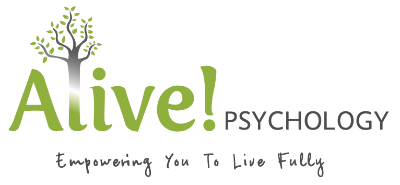How does mindfulness and self-love contribute to being able to be calm in the storm
The mindfulness practice is simply about sitting with yourself. Sometimes, we have what we call a “good sit” and that means that it was all calm and peaceful. The zen type experiences. The one we all crave and want. However, true mindfulness is not about craving or searching for this pleasant state. It is about welcoming all states – the calm, lovely ones as well as the distressing, busy, unfocused, emotional ones. This is often the part where novice and sometimes experienced practitioners falter. Like everyone else, I used to describe my sitting practices as a “good sit” or a “bad sit”. Bad meaning that it was not calm or peaceful. That I was distracted with thoughts or emotions.
There is no such thing as good or bad – the conditional world
With various teachers support, I have learnt that there is no such thing as a good or bad sit. It is just a sit with different conditions. And if I allow the conditions to determine my state of mind or heart experience, they I am forever a victim to contentions. I can only be happy if things are going right, if everyone likes me, if….
The second that things are not right (as I think it should be) then I can’t be happy. And I have to spend my time and energy into fixing that thing so that I can go back to being ok or happy – until the next thing changes. This is how we live in constant anxiety and distress.
Mindfulness is accepting, with an open heart – the good and the bad. The self-love element is being kind to yourself and holding yourself during the difficult times. If you are having an unpliant sit, can you bring love and compassion to yourself as you feel the pain and suffering.
Your brain and mindfulness
In terms of brain functioning, what mindfulness does is that it changes our brain structures. So it is literally doing brain surgery on yourself. For most of who respond to the conditional world as described above, your fight or flight brain reacts to any of the changes in your environment where you cannot be happy any more.
Something is wrong and your fight and flight brain is activated – like the person with whom I had the altercations. There is no thought process – just naught to 100 in a second. The mindfulness practice clears out the irreverent stuff from the fight or flight brain so that only really life threatening stuff remains in there. The rest of the stuff is moved into the logical part of the brain or the thinking brain. So now, when something does not go right, I can stop and reflect because the instinct/fight/fight brain is not activated.
This is the brain science behind mindfulness and why it has helped me to not be so reactive.
Self-love in a storm
The self-love element is similar but different. I don’t want to get angry because it feels unpleasant in my body. Me losing my cool, means that I have connection to my heart.
I have recently had a series of altercations with someone who I love. What I was impressed about during these altercations was that I was able to remain calm and centred while he ranted and raved on. Removing myself from the environment was an act of self-love and love for the other person in the altercation. By leaving, I ensure that we don’t have another altercation meaning that he can hopefully re-set.
The other part of the self-love is that I do not harbour anger or hatred towards to this person. I still love him and I would love for him to have peace in his heart. Love does not mean that I allow him to abuse me or my loved ones. It means that in my heart, I hold him in tenderness and love. During my living kindness practice I send him love. I pray that his heart softens and he too can feel love and peace. I cannot do it for him.
If I harbour hatred or anger in my heart for him, then I have given him control over me and over my heart – something that I have worked so hard to reclaim and keep in peace.
If you would like to be calm amidst your storms, get in touch with Bhavna today to talk about how mindfulness can help.

